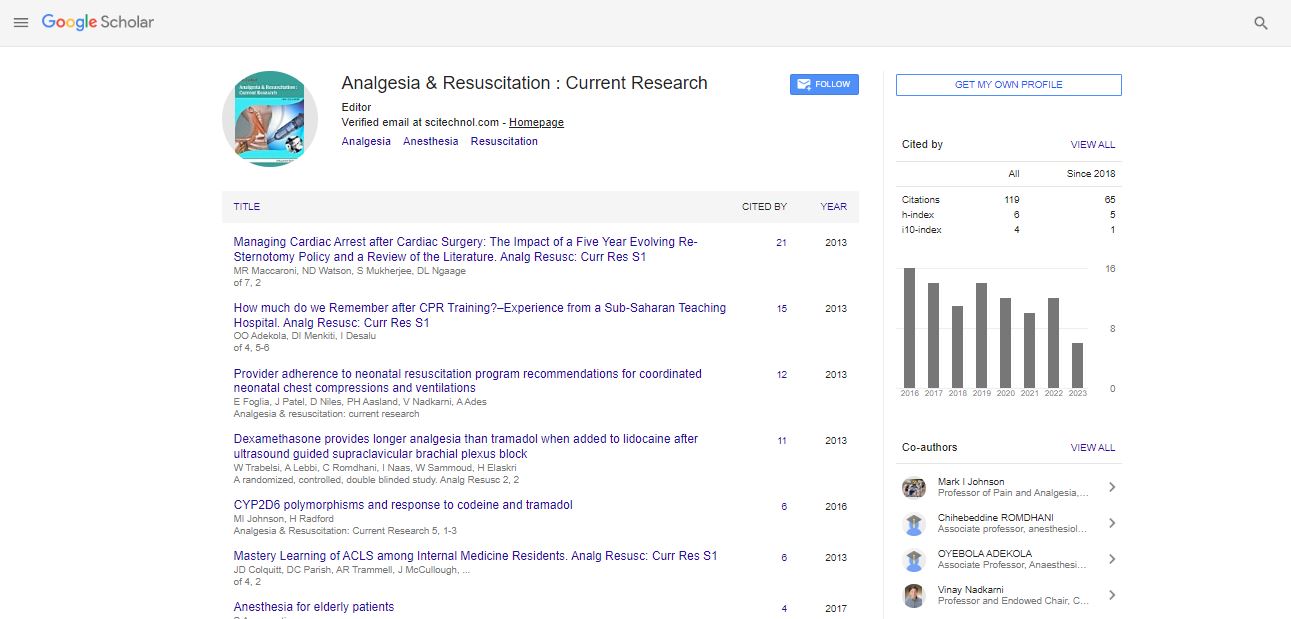Depolymerization and oxidative degradation of poly (ethylene oxide)
Srinath Muppalaneni, David Mastropietro and Hossein Omidian
Nova Southeastern University, USA
: Analg Resusc: Curr Res
Abstract
Prescription medications resistant to abuse and misuse are often made to resist mechanical methods of crushing. Polyethylene oxides (PEO) of high molecular weight have become popular excipients for such applications using thermal processes to achieve crush resistance. However, abusers have found both in the literature and on the internet that PEO can lose its abuse deterrent properties through degradation when exposed to UV light or high temperatures. The primary objective of this study was to determine the effect of high temperatures and air environment on the degradation of polyethylene oxide. Commercial grades of PEO (Polyox™ WSR) were selected for study and include, N60 k, 301, coagulant, and 303 having respective average molecular weights of 2 million, 4 million, 5 million and 7 million.Measurements of thermal degradation were investigated by thermo gravimetric analysis (TGA) in combination with differential thermal analysis (DSC). Results were obtained in the temperature ranges of 25-445oC for DSC (Perkin Elmer DSC 4000) and between 30-500oC for TGA (Perkin Elmer TGA 4000) at a rate of 10oC/min while under a nitrogen or room air atmosphere (20 mL/min). In air the depolymerization temperature ofN60k, 301, coagulant and 303 was 195.22, 194.91, 191.78 and 192.12oC, respectively. The inflection pointsobtained from TGA curves were295.99, 294.75, 293.89 and 293.15oC, respectively. On the other hand no depolymerization was observed under nitrogen conditions and inflection points were obtained at much higher temperatures, 415.6, 416.1, 414.4 and 416.69oC, respectively.It was concluded that polyethylene oxide is unstable at higher temperatures under normal air conditions and therefore anti-oxidant should be considered for formulation stability and preservation of abuse deterrent features.
Biography
Srinath Muppalaneni earned a BS in Pharmacy from Andhra University and a MS in Pharmaceutical Sciences from Campbell University. He is currently a Doctoral candidate in Pharmaceutics at Nova Southeastern University (NSU) with dissertation research focusing on abuse-deterrent formulations. David Mastropietro received his BS in Pharmacy from Massachusetts College of Pharmacy and Ph. in Pharmaceutics from NSU. Hossein Omidian has an MSc in Chemical Engineering and a PhD in Polymer Science. He is currently an Associate Professor at NSU and leads the research group in Advanced Pharmaceutical Dosage
 Spanish
Spanish  Chinese
Chinese  Russian
Russian  German
German  French
French  Japanese
Japanese  Portuguese
Portuguese  Hindi
Hindi 
